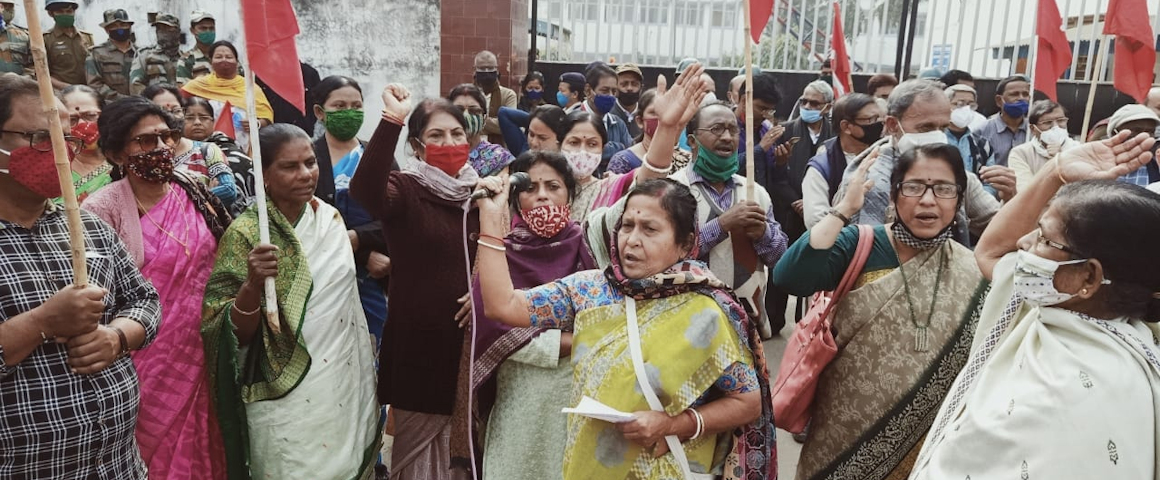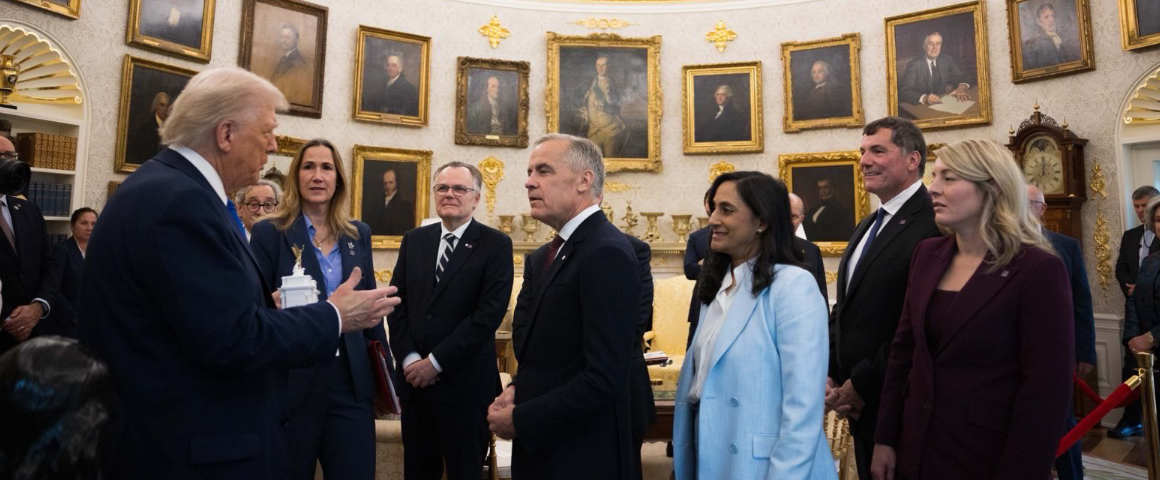By B Prasant, Kolkata
The farmers’ sit-in has now passed two months. In the rainy winter cold of northern India, 171 of the demonstrators have succumbed to the extreme weather, mostly the elderly and the ill. None of the central or state governments have come forward with medical assistance. But the kisan (farmers and peasants) are more resolute than ever, and more united than ever, in their struggle to force the government to withdraw the three farm bills and the anti-people electricity legislation.
During our one-and-a-half-day stay with the protesters, we noted how those who were severely sick received emergency treatment in the 30-bed camp hospital that has been set up at the Singhu border and run by doctors and nurses from Delhi and the adjoining districts. The doctors themselves have contributed medicines and life-saving equipment.
The peasants and farmers remain in high spirits. Every day, rain or shine, from the break of dawn to the very late afternoon when icy winds start to gust fiercely across the open fields, they organize demonstrations at every blocked highway crossing. These occasions are marked by speeches, slogan-shouting and hearty singing.
In the face of such fearless resolution, Prime Minister Narendra Modi has resorted to terror tactics. Central anti-terrorism agencies have persuaded the high courts in northern Indian states of the “anti-state and anti-national” character of the kisan struggle, seeking clearance to organize mass arrests.
The agencies – especially the dreaded and US-trained National Investigation Agency (NIA), which flaunts its ill-gotten reputation for thousands of targeted killings in Kashmir, Punjab and elsewhere in the country – have started enquiries against every leader of the participating 500 kisan unions. They are using a raft of charges, from “Sikh-led and Pakistan-fed ‘Khalistani’ separatism” to “Maoism and planned bomb blasts” to “drug trafficking and abduction.” Nationwide probes have even been set in motion against those supporting the farmers’ struggle, including journalists.
To Modi’s uneasiness, right from the second week of the kisan movement, ever-larger numbers of high-ranking police officers and other police personnel have resigned from their posts to join the agitation. Furthermore, recent days have witnessed hundreds of Indian Army soldiers on leave join the ranks of the farmers, and in increasing numbers.
The government is now in a panic and has swiftly brought charges of misconduct against these brave people. We now learn that the central government is on the verge of implementing, for the first time, section 31 of the Army Act which prohibits armed forces personnel from participating “in any form of protests,” especially those led by “trade unions of any sort.” Long terms of harsh imprisonment follow if convicted.
The Supreme Court has recently come to the aid of the central government, issuing orders that the farmers’ unions must meet a court-nominated committee to resolve the ongoing impasse. The committee’s recommendations would be final and binding. Notably, all four members of the committee are strong and vocal supporters of the three farm bills, and they have repeatedly and publicly called the farmers’ protests “anti-national.”
In the face of these encroachments on their rights, farmers continue to stand fast against all attempts to thwart and destabilize their struggle. The leadership has clearly stated that the movement will not be derailed by arrests or worse, and the farmers’ unions have decried and rejected the court’s initiative. Hannan Mollah, leader of the All-India Kisan Sabha which has 450 peasants’ unions under its leadership, told People’s Voice that the Modi government must withdraw the farm laws – the courts have nothing to do with the process.
In the meantime, contingents of farmers and agricultural workers have started to arrive in the tens of thousands at the Delhi-Haryana and Delhi-Rajasthan border, from as far as Bengal and Kerala, to reinforce the protest and give it a national character. January 18 was observed in all states as a women kisan’s day, with marches and demonstrations before state administrative secretariats.
The kisan now await the grand program for the planned January 26 march on Delhi, as the nation observes its 71st Republic Day. The demonstration will include half-a-million farmers and a 10,000-strong tractor rally. The march and the rally, the kisan leadership assures us shall remain peaceful even if faced with provocations. Army contingents and armed police battalions have already taken up positions in and around the capital.
In a recent appeal, the central kisan leaders have urged state-level farmers’ and agricultural workers’ unions to take the struggle to the district and local level, to place increasing pressure on the anti-people Modi government and to force it to rescind the farm bills. Darshan Pal Singh, the veteran leader of the Kranti Kari (revolutionary) Kisan Union, assures us that the struggle shall continue peacefully but with increasing fervour, until victory is assured.
[hr gap=”10″]
Get People’s Voice delivered to your door or inbox!
If you found this article useful, please consider subscribing to People’s Voice.
We are 100% reader-supported, with no corporate or government funding.




